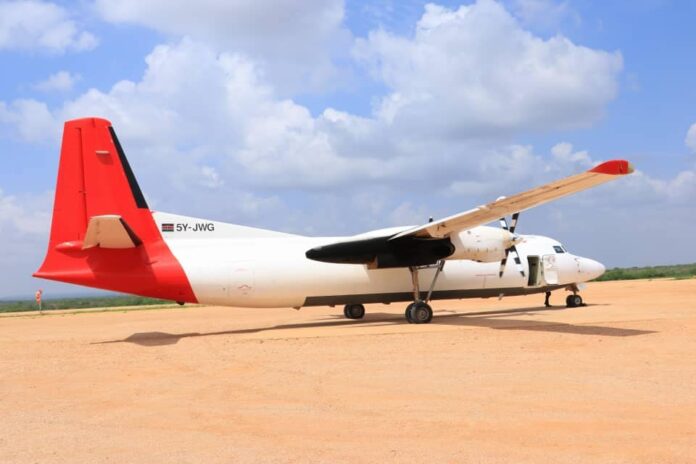MOGADISHU, Somalia – The Somali government has taken the drastic step of suspending all civilian air traffic to Dolow in the Gedo region following a controversial incident where Ethiopian forces detained six Somali National Army (SNA) personnel at the local airport. The decision comes as tensions between the federal government and the regional state of Jubaland reach a new height.
The soldiers, who were dressed in civilian clothes, were on their way to Jubaland when they were apprehended by Ethiopian troops, who are part of the African Union Transition Mission in Somalia (ATMIS) but also operate independently to secure areas against Al-Shabaab insurgents. The Somali government has demanded the immediate release of the soldiers to the National Intelligence and Security Agency (NISA) at Dolow, conditioning the resumption of flights on this outcome.
This incident has not only strained the already fragile relationship between Somalia’s central government and Jubaland but has also spotlighted the complex interplay of regional security dynamics. Jubaland, with its capital in Kismayo, has been a focal point of contention due to its strategic location and the ongoing political dispute with Mogadishu over control and governance.
Jubaland officials have previously accused the federal government of attempting to undermine their regional autonomy, particularly with the approach of elections in Kismayo. The arrest of the soldiers has fueled these accusations, with some local politicians suggesting it might be an orchestrated move to influence the electoral process.
The Ethiopian military’s role in this episode underscores the broader geopolitical interests in the Horn of Africa, where Ethiopia has long played a significant role in peacekeeping and counter-insurgency efforts. However, the detention of Somali soldiers by Ethiopian forces has led to diplomatic friction, with Somali officials questioning the legality and motives behind the arrests.
In response to the flight suspension, local residents and traders in Dolow, a town critical for cross-border trade with Ethiopia and Kenya, expressed concern over the economic ramifications, as air travel is a vital lifeline for the region, especially given the control Al-Shabaab exerts over many land routes.
The international community has called for restraint and dialogue to resolve the situation. Diplomats and regional experts fear that if left unchecked, these tensions could exacerbate instability, potentially benefiting insurgent groups like Al-Shabaab.
In the meantime, both sides have yet to indicate when talks might begin to address the standoff, leaving many to wonder how long the aerial blockade will last and what broader implications it might have for Somalia’s fragile federal system and its pursuit of national cohesion.






